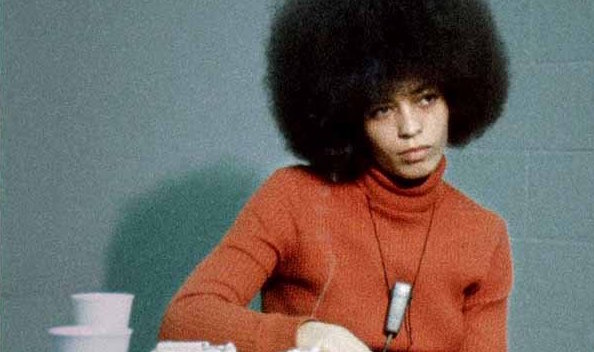It’s a subject that’s close to most people, elusive to some.
It sometimes soars above us, sometimes not. It droops or dazzles or delights or just disappears.
We’re talking about hair, and the special role it has had in Black history, before and after the Afro-powered (shown here) ’70s. Now that’s the subject of “Hair Tales,” a six-hour series available on Hulu and (9 p.m. Saturdays) on the Oprah Winfrey Network.
Yes, six hours on hair. There’s a lot to talk about, said producer Michaela Angela Davis. “There’s joy, there’s resilience, there’s challenge. There’s history … there’s hysteria.”
Especially history. Davis mentions three women who “put their Ph.D’s into studying Black women’s culture through the lens of hair.”
There’s much to study, said Tracee Ellis Ross, a producer of the show. When she was a teen in the late 1980s, pop culture seemed to think everyone should have European-style hair.
“I took that personally,” she said, “and really sort of put that on my own self that I wasn’t enough, I wasn’t correct …. The industry of beauty has not necessarily mirrored the reality of who we are.”
She got over that, flashing lots of styles as an actress (a Golden Globe-winner and four-time Emmy-nominee for “Black-ish”) and as the founder of a hair-care company.
That makes her, Davis says, “part of a legacy – Madam C.J. Walker to Tracee Ellis Ross.”
Walker, who died more than a century ago, created hair-care products and cosmetics for Black women; she’s been listed in Guinness as the first female self-made millionaire.
She was at one end of the Black beauty industry. In its day-to-day world, Davis said, people have had a huge impact. “These are Black women who have stood on their feet, with their hands in our heads, getting us to school, moving us forward, registering people to vote, funding the civil-rights movement.”
The “Hair Tales” producers have names that do – and don’t – suggest key links:
— Ross is the daughter of Diana Ross, who displayed countless looks as a real-life rock star and (in movie roles) a blues star and a fashion designer. “People always ask me: ‘Did you grow up in your mother’s shadow?’” Tracee said. “I did not. I grew up in my mother’s embrace.”
— And Davis – contrary to many people’s assumptions — is NOT the daughter of Angela Davis (shown here) … who, as it happens, is a key part of Black history and hair history.
The name came because her mother was expecting to have a boy named Michaelangelo, then switched it slightly. Combine that with the surname and you have Michaela Angela Davis.
The real Angela Davis, 78, is a retired college professor and dean who has written a dozen books. As a prime figure of the 1970s Black Power movement – she was considered a villain (fired by UCLA twice, jailed for a year before being acquitted) and a hero as towering as her Afro hairstyle.
“Angel Davis is the kind of iconic figure for the Afro, right?” Michaela Angela Davis said “Even though we can look at the whole Black power movement, the Black Panther party, there were Afros everywhere, … eBcause of her fierceness, because of her advocacy, because of her beauty, because of her brilliance, (she became) the most known person to rock a ‘fro.”
And now this Davis – not her daughter, but a former fashion editor and stylist to the stars (including Diana Ross and Oprah Winfrey) – is part of a series that has conversations about hair and life.
All of the hours will be available on Hulu as soon as they debut on OWN. That starts Oct. 22, with Winfrey at 9 p.m. and Issa Rae at 10. After that, it will be U.S. Rep. Ayanna Pressley (D-Mass.) at 9 p.m. Oct. 29, with the others – singers Chloe Bailey and Chika, plus actress Marsai Martin, the former “Black-ish” co-star and “Grown-ish” star – on subsequent Saturdays.
